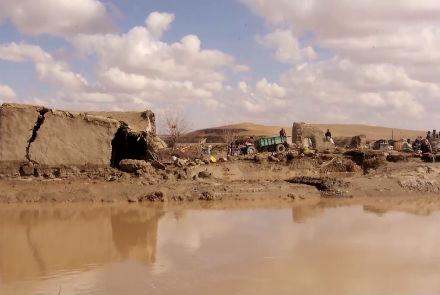Embassy of Republic of South Korea in Kabul on Thursday pledged $16 million for Afghanistan to strengthen food security and mitigate the impacts of natural disasters in the country.
South Korean Ambassador to Afghanistan Zha Hyoung Rhee at a ceremony in Kabul said the money will be invested in nine provinces, including Badakhshan, Nangarhar, Bamiyan, Logar and Parwan, for four years through the World Food Program, WFP.
“There is no country in the world which is free from natural disasters and Korea is no exception. However, the impact of these disasters can be mitigated by human efforts. As such, while we believe immediate response to disasters is important, building resilience to disasters is of paramount importance, especially in the long run. As the saying goes, you need to provide those in need not only with the fish, but also fishing gear and the knowledge about fishing,” he said.
WFP Country Director Zlatan Milisic, meanwhile, said the assistance will be spent through various programs such as distribution of food packages to affected families, building infrastructures for preventing possible damages of floods and decreasing vulnerabilities from draughts.
“Across many areas of Afghanistan, people still rely on rain-fed agriculture, which means they are highly vulnerable to environmental shocks. By investing in land and water management, and community asset creation, such as flood protection walls, irrigation canals, and tree nurseries, families will have a better chance at withstanding natural disasters and recovering from them quickly,” said Milisic.
Mohammad Rafiq Qazi Zada, head of Natural Resources Department of the Ministry of Agriculture, Irrigation and Livestock said the assistance will play a crucial role in decreasing people’s vulnerabilities to natural disasters.
“This aid can be a good cooperation in terms of food security and reducing the impacts of natural disasters,” said Qazi Zada.

